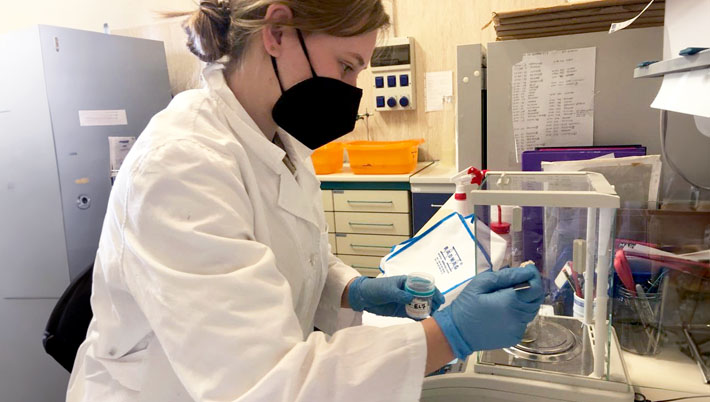A complete graduate school application usually consists of the application form, application fee, graduate school exam score, personal statement, letters of recommendation, official transcripts from all higher education institutions attended, and a resume or curriculum vitae (CV). Most programs will not review your application until all required elements have been submitted.
Graduate School Exams
Many graduate and professional schools require graduate school exam scores for admission. Many students spend months preparing for the exams to ensure a competitive score. It is therefore very important to prepare for and take these exams early; this means it is a smart strategy to obtain your final scores during your Junior summer or by the fall of the year in which you will be applying. This will give you sufficient time to retake the exam if necessary and ensure your scores are available prior to the application deadline.
The most common graduate school exams are the Graduate Record Exam (GRE) for masters and doctoral programs, the Graduate Management Admission Test (GMAT) for MBA programs, the Law School Admission Test (LSAT) for law school, the Medical College Admission Test (MCAT) for medical school, Professional Assessments for Beginning Teachers (PRAXIS), and the Test of English as a Foreign Language (TOEFL).
Personal Statement
The personal statement (also known as a statement of purpose or letter of intent) is designed to help persuade the admissions committee that you are a suitable applicant for their program. It is the equivalent of an in-depth cover letter, in which you explain why you are applying to the program, your intended use of your graduate degree, and your unique preparation and fitness for study in the field.
Be careful to answer any prompts for the personal statement as fully as possible. If no or minimal prompts are provided, try to include the following components as part of your final essay:
- Your purpose in graduate study. Why exactly are you applying to graduate school now? If you are unable to answer this question now, you may need more time before applying.
- The area of study in which you wish to specialize. Learn about the field in detail so that you are able to state your preferences using the language of the field.
- Your intended future use of your graduate degree. Include your career goals and plans for the future.
- Your unique preparation and fitness for study in the field. Highlight your relevant academic background and extracurricular experience.
- Any problems or inconsistencies in your records or scores, such as a poor exam score or GPA. Explain any issues in a positive light, highlighting the offsetting positive aspects of your candidacy. In some instances, programs offer a separate application essay to cover this kind of mitigating information.
- Why you hope to attend this particular program. Research the school/program and describe its special appeal to you. This part of the essay needs to be very customized to the program.
- Above all, this statement should contain information about you as a person. All the rest of the application is factual in nature. This personal statement is your opportunity to use your own voice, be authentic, and show your character.
Letters of Recommendation
Letters of recommendation are required for almost every graduate school application and should be written by individuals who know you well and can speak to your suitability for the type of program to which you are applying. Consider asking professors who know you from more than one class and outside of class, with whom you have conducted research, who have advised you on your senior thesis, or who awarded you excellent academic grades, as well as past internship and job supervisors.
Letters of recommendation are written on a voluntary basis so you need to ask potential letter writers if they are willing to write you a strong letter. Be considerate of your letter writers’ time and approach them at least two months before the application deadline. Faculty are especially busy during the months of November and December, and they need to put aside time to write a strong letter on your behalf.
We recommend that you provide all your letter writers with important information to assist them with the task of writing you a strong letter:
- A list of schools to which you are applying, application deadlines, and instructions on how they will submit the letters
- What you would like emphasized in their recommendation letter (if relevant)
- A reminder of the courses you took with them, in which semesters, and a copy of your best work in each course
- A draft of your personal statement (for both context so they understand how you are presenting yourself and to invite them to review and provide feedback)
Resume/CV and Transcript
You can request a copy of your transcript from the Registrar’s office.






